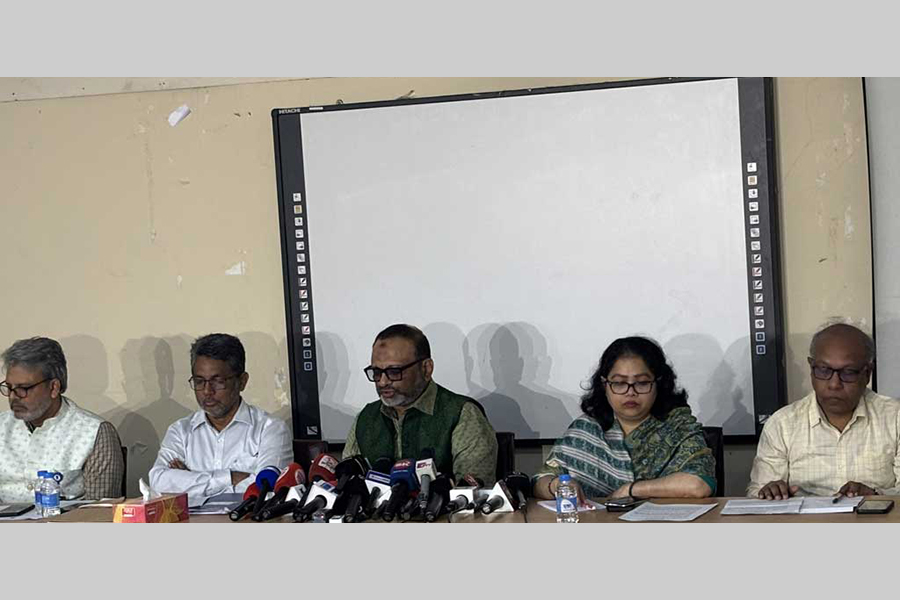

The printing place of ballots and their lack of numbering did not “impact” the Dhaka University Central Students Union (DUCSU) elections, according to Dhaka University Vice-Chancellor Niaz Ahmad Khan.
Speaking at a media briefing on Sunday, he stressed that the ballot printing process involved multiple layers of checks that ensured due diligence, reports bdnews24.com.
"It is clearly understood that neither of these factors affected the fairness of the election in any way because several steps are necessary to fully prepare the ballot papers for voting. After printing, the ballots must be cut to size," he said.
"Then it has to be prepared as machine-readable by applying a security code and pre-scanning it on the OMR machine. Only after this, with the seal and signature of the Chief Returning Officer as well as the signature of the centre’s designated Returning Officer, do they become suitable for voting. These processes were followed, and voting was conducted with due diligence.”
His comments come against the backdrop of allegations from candidates that ballot papers had been found in an “unprotected state” at a printing house before the election.
Niaz said that an experienced company was given the responsibility of printing the ballot papers through a competitive bidding process following all the rules.
In order to print the required number of ballots in the shortest possible time, and in consideration of the record number of voters and candidates, they discussed with the main vendor and allowed a similarly qualified associate company to be involved in the work under the same tender, he said.
The VC said that the associated vendor did not inform the university authorities about the ballot papers being printed at Nilkhet.
However, regarding the associate vendor not informing the authorities about the issue, the VC explained: "According to the vendor's information, the associate vendor printed 88,000 ballots using 22 reams of paper in Nilkhet. Of them, after the printing, cutting, and pre-scan stages, 86,243 ballots were sealed in a certain number of ballot packets and set to supply, while the excess ballots were destroyed in the conventional manner."
“The vendor also said they supplied the ballots to the university after cutting, scanning and sealing. They ensured the highest security in the ballot preparation process and in transporting them according to the contract. They admitted that they forgot to inform the authorities about the ballot printing and cutting at Nilkhet due to their busy schedule.”
He said, according to the work order, 239,244 ballots were finally prepared for voting in the above process. The total number of voters was 39,874 and six ballots could be allotted per voter. A total of 29,821 voters cast their ballots. As many as 178, 926 ballots were used with 60,318 remaining.
In addition, regarding the issue of CCTV footage and the signed list of voters that came to the forefront again amid various allegations, the vice chancellor said: “We have previously stated in detail that any contestant willing to watch the CCTV footage to review a specific time or a specific incident, they can apply following proper process and watch it in presence of the university nominated experts or people at a place fixed by the university. We have discussed the showing of voter lists signed by the voters with the university's lawyers again.”
“They suggested the following - if a candidate wants to observe the signature of a specific person for specific and legitimate reasons, then upon application through the appropriate process, it can be shown in the presence of an expert or designated persons nominated by the authority.”


 For all latest news, follow The Financial Express Google News channel.
For all latest news, follow The Financial Express Google News channel.